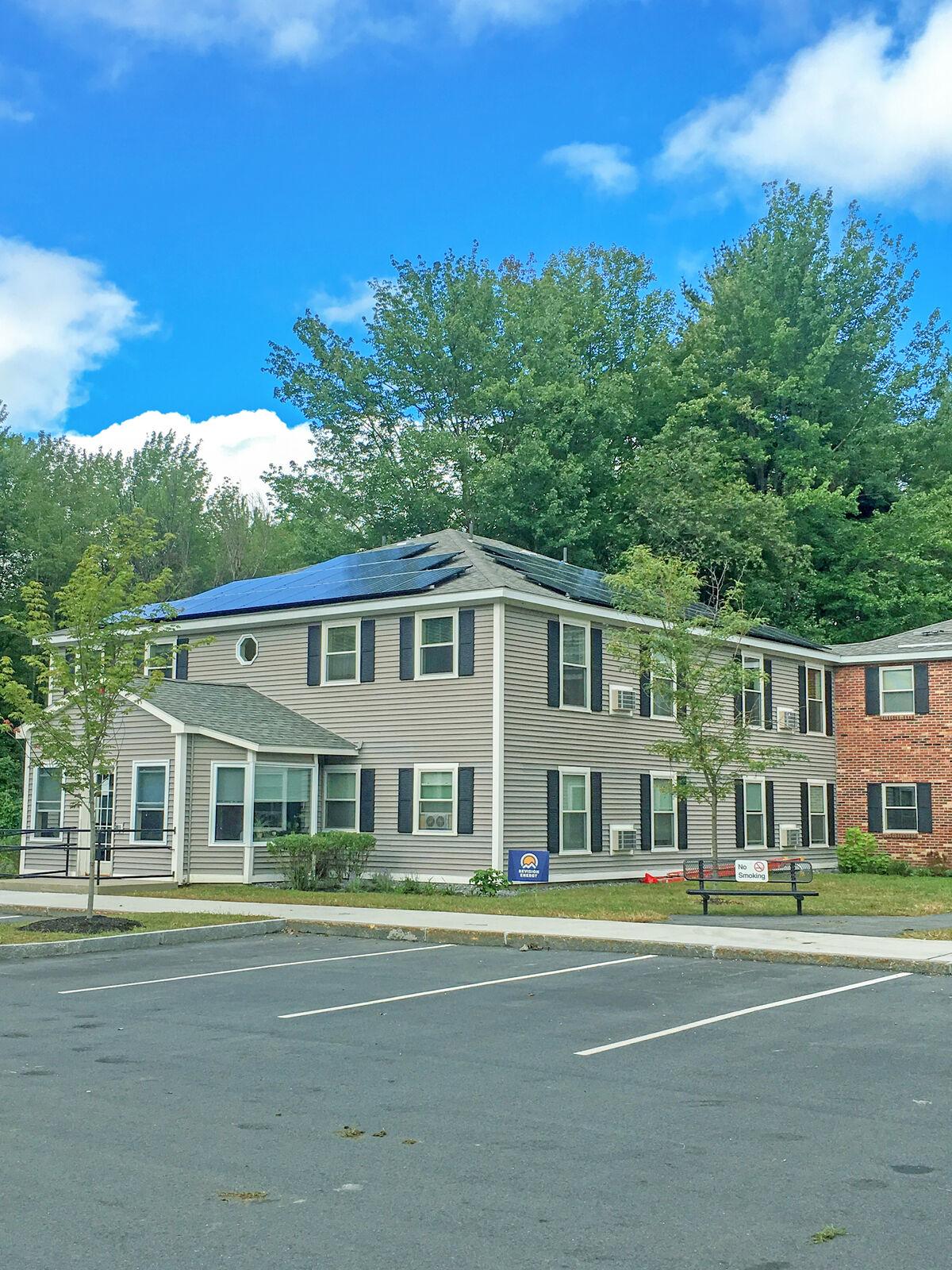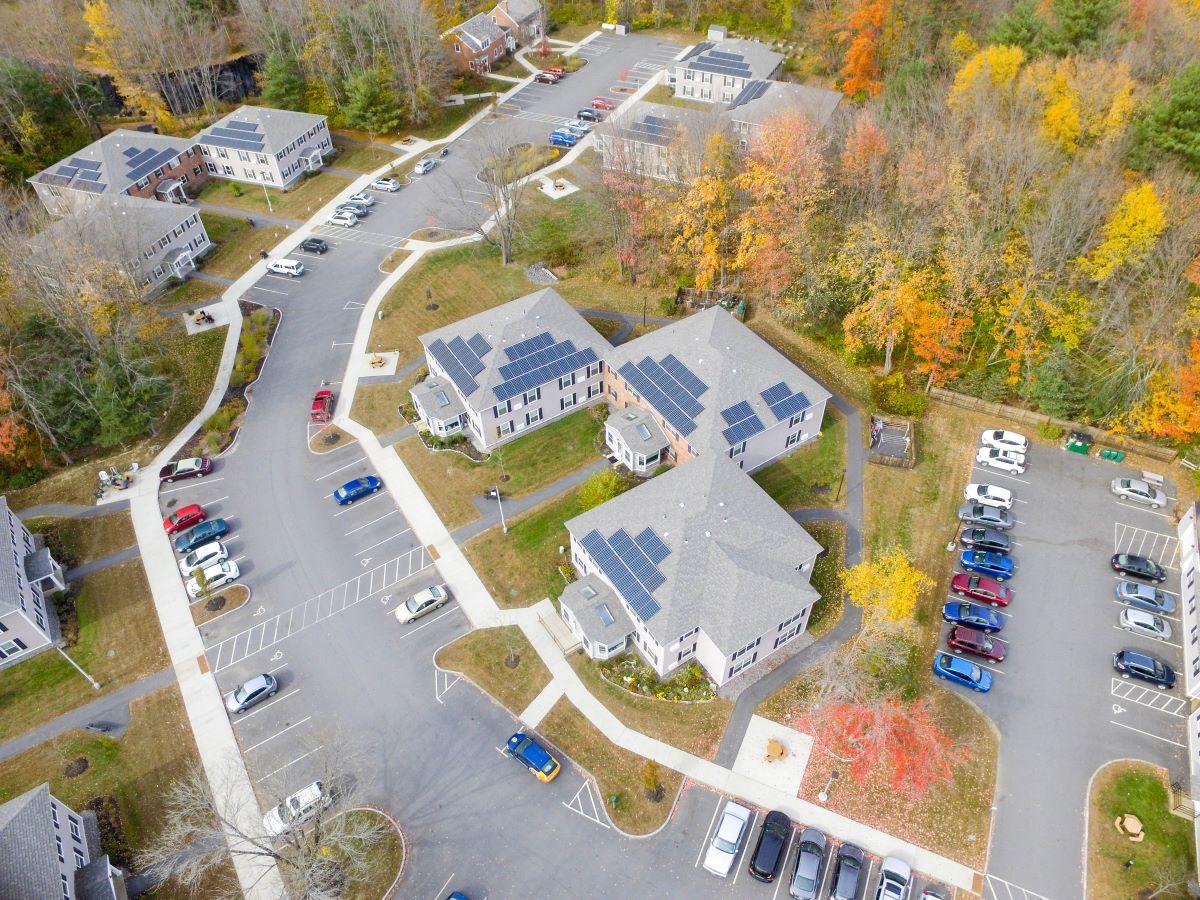Keene Housing Authority | Keene, NH
 By the numbers:
By the numbers:
System size: 92 kilowatts DC (300 solar panels)
System output: 105,592 kilowatt-hours/year
CO₂ reduction: 103,586 pounds/year
Year Completed: 2018
In 2020, ReVision completed the third solar project for Keene Housing in New Hampshire. Solar projects for Keene Housing lower the affordable housing community's energy costs, enabling them to free up more resources to provide safe, sanitary living accommodations to vulnerable and low-income populations.
Since their founding in 1965, it's been Keene Housing's mission to advocate for families, and support residents' moves to greater economic independence. The solar array installed in December of 2018 cover 10% of the energy needs from their 112 apartments.
“We are very excited to take this next step towards reaching our goal of being 100% renewable by 2035,” said Keene Housing executive director Josh Meehan. “Thanks to our partnership with ReVision we’re reducing our operating costs while significantly reducing our real estate portfolio’s carbon footprint.”
A Power Purchase Agreement (PPA) gives Keene Housing the ability to leverage the economic and environmental benefits of solar power with no upfront cost. Instead, the solar projects are funded by impact investors, granting these partners an opportunity to make community investments that express their commitment to environmental sustainability. The three arrays built through the PPA are expected to save Keene Housing almost $3 million in electricity costs over the lifetime of the systems.
 Harper Acres is the first of Keene Housing's properties to go solar, and they plan to convert all of their housing to renewable energy to meet their goal of being 100% powered by renewables by the year 2035.
Harper Acres is the first of Keene Housing's properties to go solar, and they plan to convert all of their housing to renewable energy to meet their goal of being 100% powered by renewables by the year 2035.
Keene Housing upgraded their energy efficiency with new windows and LED lighting for their Harper Acres apartments, and they also have a community garden.
Executive Director Joshua Meehan says, "Reducing our energy costs provides us with capital that can be used to maintain the housing we have and to pursue new opportunities for creating additional housing for those in need. From an environmental standpoint, reducing our greenhouse gas emissions supports the community's efforts to remain a great place to live, work and play."
